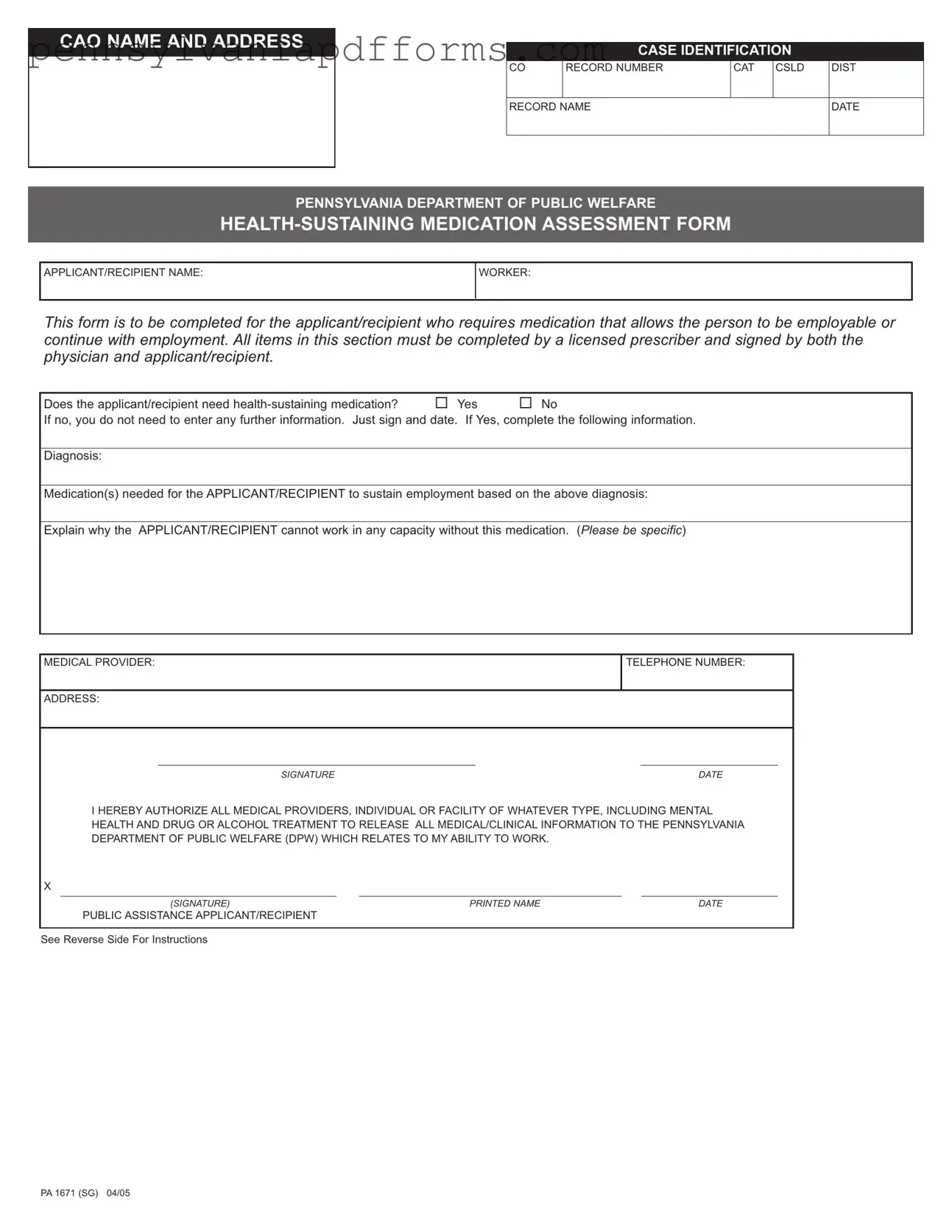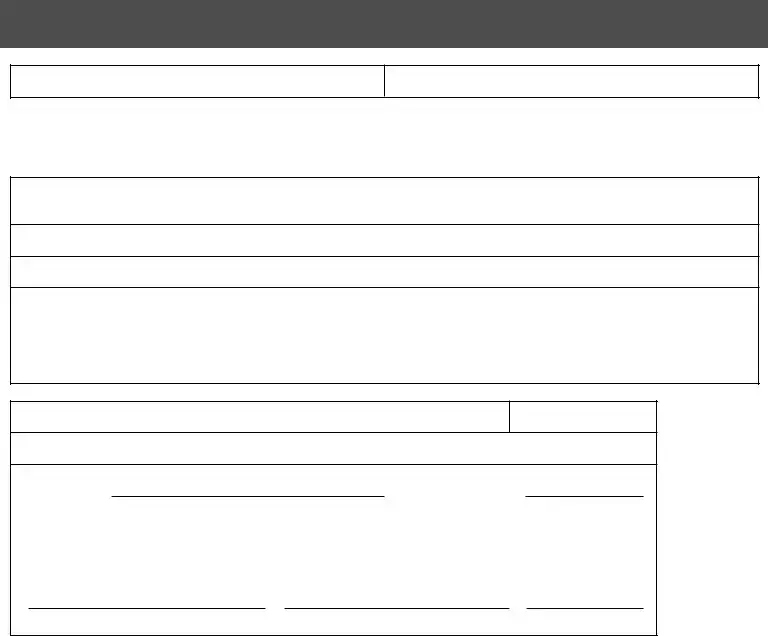The PA 1671 form is similar to the Form I-485, Application to Register Permanent Residence or Adjust Status. Both documents require detailed medical information to assess eligibility for a specific benefit. The I-485 form includes a section where applicants must provide medical examinations and vaccinations required for adjustment of status. Just as the PA 1671 form assesses the need for health-sustaining medication for employment, the I-485 form ensures that applicants meet health standards necessary for residency in the United States.
Another document that shares similarities with the PA 1671 form is the Social Security Administration's (SSA) Disability Report. This report requires individuals to provide medical evidence supporting their claim for disability benefits. Like the PA 1671, the SSA form necessitates detailed information from licensed medical professionals regarding an individual's condition and how it affects their ability to work. Both forms emphasize the importance of comprehensive medical documentation to establish eligibility for benefits.
The Employment Authorization Document (EAD) application also resembles the PA 1671 form in its requirement for medical assessments. When applying for an EAD, individuals may need to submit medical evaluations that demonstrate their ability to work. Similar to the PA 1671, the EAD application process may involve medical professionals providing specific diagnoses and recommendations related to an applicant's employability.
The Medicaid application form is another document that parallels the PA 1671. Medicaid requires applicants to provide medical information to determine eligibility for health coverage. Both forms necessitate detailed documentation from healthcare providers, including diagnoses and treatment plans. The PA 1671 specifically focuses on health-sustaining medications that enable employment, while Medicaid assesses overall health needs for coverage.
The Supplemental Nutrition Assistance Program (SNAP) application also shares common elements with the PA 1671 form. Both documents require information regarding an applicant's health status, particularly when medical conditions impact their ability to work and provide for themselves. The SNAP application may ask for medical documentation to justify eligibility for benefits, similar to the requirements outlined in the PA 1671.
The Veterans Affairs (VA) disability claim form is akin to the PA 1671 form as well. Veterans seeking disability benefits must submit medical evidence that supports their claims. This includes detailed information about their service-related conditions and how these conditions affect their ability to work. Both forms require comprehensive medical assessments from licensed professionals to substantiate claims for benefits.
To successfully transfer property ownership, it's crucial to understand the importance of a properly executed Deed form, especially within the context of California regulations. For your convenience, you can access the necessary documentation by visiting the essential California Deed form guide.
The Family and Medical Leave Act (FMLA) certification form is another document with similarities to the PA 1671. Under FMLA, employees must provide medical certification to take leave for serious health conditions. This form requires healthcare providers to describe the medical condition and its impact on the employee's ability to work. Like the PA 1671, it emphasizes the need for detailed medical documentation to support the request for benefits.
The Child Disability Report, used by the SSA, is also comparable to the PA 1671 form. This report requires parents to provide medical information about their child's disability to determine eligibility for benefits. Both documents necessitate detailed input from licensed medical professionals regarding the child's condition and how it affects their functioning and employability.
Finally, the Long-Term Care (LTC) application form shares characteristics with the PA 1671. LTC applications require medical assessments to evaluate an individual's need for long-term care services. Similar to the PA 1671, the LTC application mandates comprehensive medical documentation from healthcare providers to justify the need for services, highlighting the relationship between health conditions and the ability to work or live independently.


